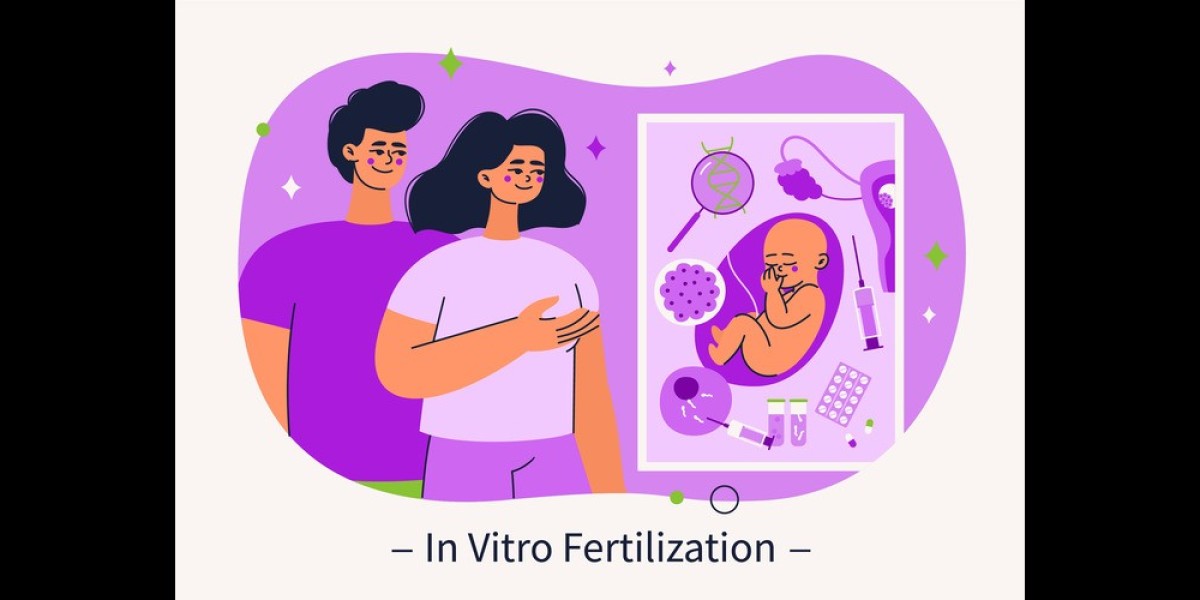The dream of creating a family is something that couples dream and, in some cases, requires some additional medical help. IVF or in vitro fertilization has turned out to be one of the most successful fertility therapies available in the world as it provides hope to individuals having difficulties in conceiving. In case you are having an experience with IVF in the first time, you can break down the process into steps to alleviate anxiety and get ready for the next stage.
This guide will take you through the IVF process- preparation till pregnancy- so that you are sure what to expect.
Step 1: Initial Consultation and Evaluation
The first step involves the first appointment with your gynecologist or fertility expert. At this phase, the doctor examines your past medical history, lifestyle, and past treatments, where applicable. Both spouses are normally tested including hormone tests, seminal tests and ultrasound to determine the health of their fertility.
This stage is important since it assists in establishing whether IVF is the best alternative or other treatments can be investigated. For consultation bookings, call us at 081053 03404.
Step 2: Ovarian Stimulation
When IVF is determined to be the appropriate method, the woman then starts to undergo stimulation of her ovary. Fertility drugs are given to stimulate the ovaries to form more than one egg during a cycle, instead of a single egg that forms normally. This augers the opportunities of extracting healthy eggs to fertilize.
The doctor keeps a tight check on the hormone levels and the development of the follicles during this period by taking blood tests, and ultrasounds to make sure that everything is proceeding correctly.
Step 3: Egg Retrieval (Ovum Pick-Up)
At the stage of egg maturity, a minor surgical operation is undertaken called egg retrieval or ovum pick-up. It is mainly combined with mild anesthesia and lasts approximately 15-20 minutes. The eggs are picked by a narrow needle used with the help of ultrasound inside the ovaries.
It is a minimally invasive and otherwise safe procedure and has a rapid recovery time: most women are back to normal in less than a day.
Step 4: Sperm Collection and Preparation
It is on the same day that the male partner offers a sperm sample on the day the egg is retrieved. Spires can even be surgically removed in instances where the production or ejaculation of the sperm is problematic. Sperm is then washed and made ready in the lab to choose the healthiest sperm to be used in fertilization.
Step 5: Fertilization and Embryo Development
When eggs and sperm are prepared, they are brought together in a pharmacy to permit fertilization. Intracytoplasmic Sperm Injection (ICSI) can also be applied in a few instances, and one sperm of good quality is injected directly into the egg.
The embryos develop in a period of three to five days. The embryologist monitors their development closely and picks the embryos of the highest quality to transfer.
Step 6: Embryo Transfer
Embryo transfer is painless and easy and it normally happens three to five days after conception. A thin catheter is then used to insert the embryo(s) in the uterus of the woman. This is not anestheticized as is the case with egg retrieval, and resembles a standard gynecological check-up.
Once the transfer is complete, it is possible to recommend the rest of the woman within a brief time frame, but the majority of women are able to resume normal daily activities shortly after.
Step 7: Luteal Phase Support and Pregnancy Test
After the transferring of the embryo, hormone supplements are used like progesterone to aid the uterine lining, and enhance implantation. Two weeks after, the pregnancy test is being done to verify that the process was successful.
Coping with the IVF Journey
Although the procedures of IVF are pretty straightforward, the emotional side of it may be overwhelming at times. During the treatment couples tend to exhibit a mixture of hope, anxiety and uncertainty. The experience can be quieted by talking openly with your doctor, relying on your loved ones, and using stress-reduction activities such as yoga or meditation.
The importance of selecting an appropriate specialist.
IVF requires not only medical technology but expertise on the part of your doctor to succeed. A well-trained and sensitive fertility specialist may give the appropriate instructions, personalize treatment strategies, and provide courage with each step. To guarantee that they have the best IVF doctor in Bangalore, many couples seek out the doctor to offer them the highest quality of care during the process.
Among the names that can be considered to be trusted is that of Dr. Shreeja Karan, known due to her patient-centered approach and experience in dealing with various fertility cases. Through her, a lot of couples have been able to sail through the IVF process with optimism.
Final Thoughts
IVF is an extraordinary medical technology which has made many families across the globe happier. Although the process can be complicated, being aware of each of the steps will make the couples feel better prepared and less anxious. IVF can be able to make the dream of having children a reality with the proper medical skill, emotional and patience.
When you are making your first steps into IVF, keep in mind that each journey is the trip of its kind. Ask questions, be informed and above all, find a specialist that would walk with you with care and compassion.







